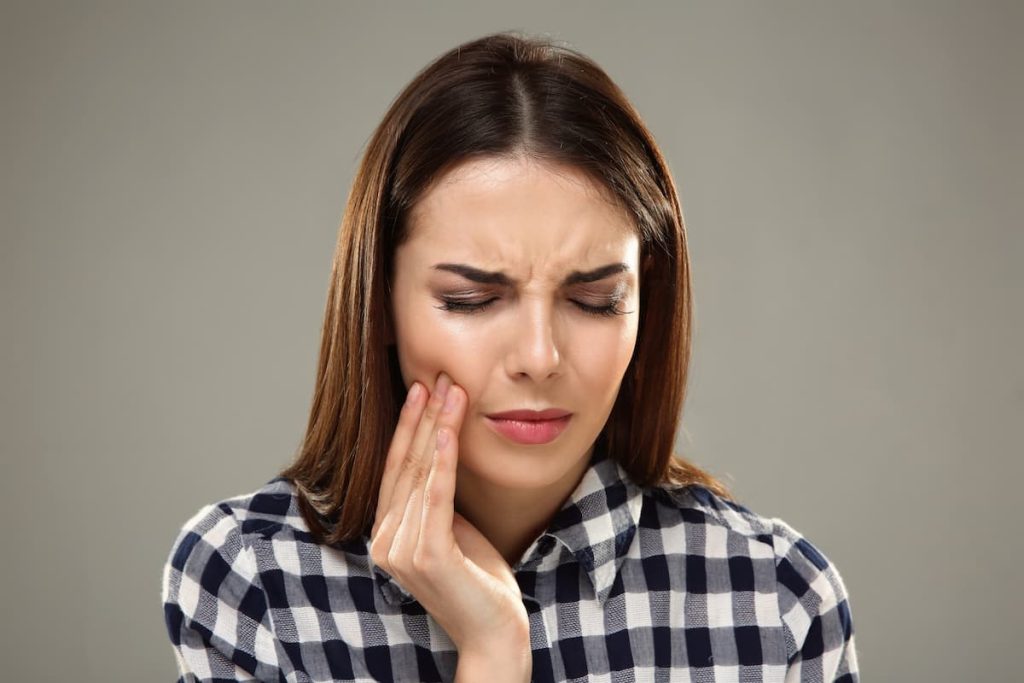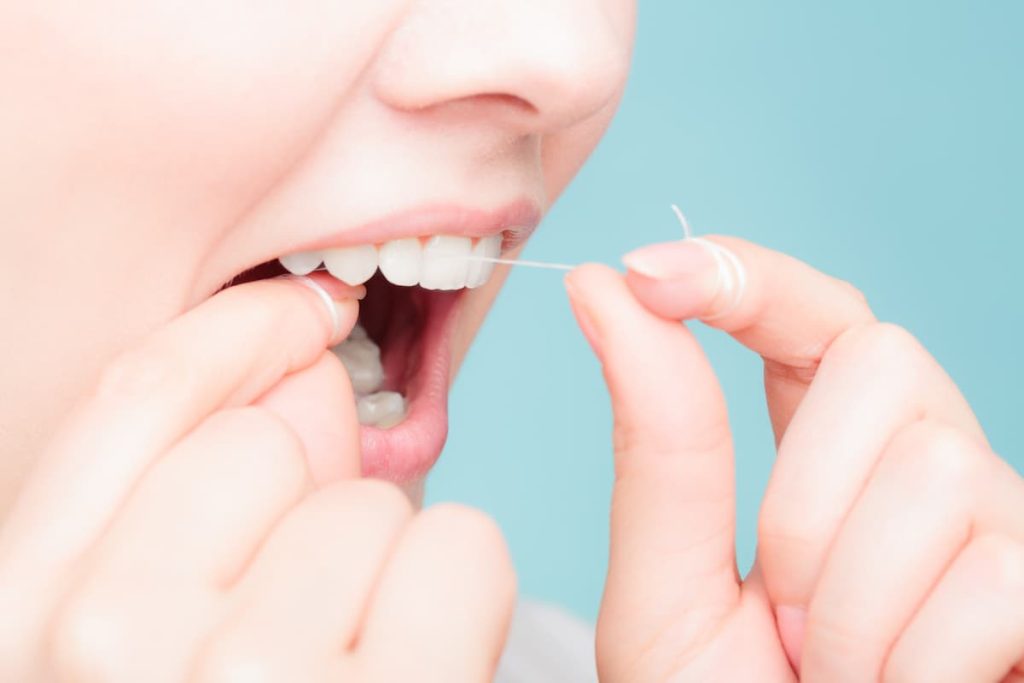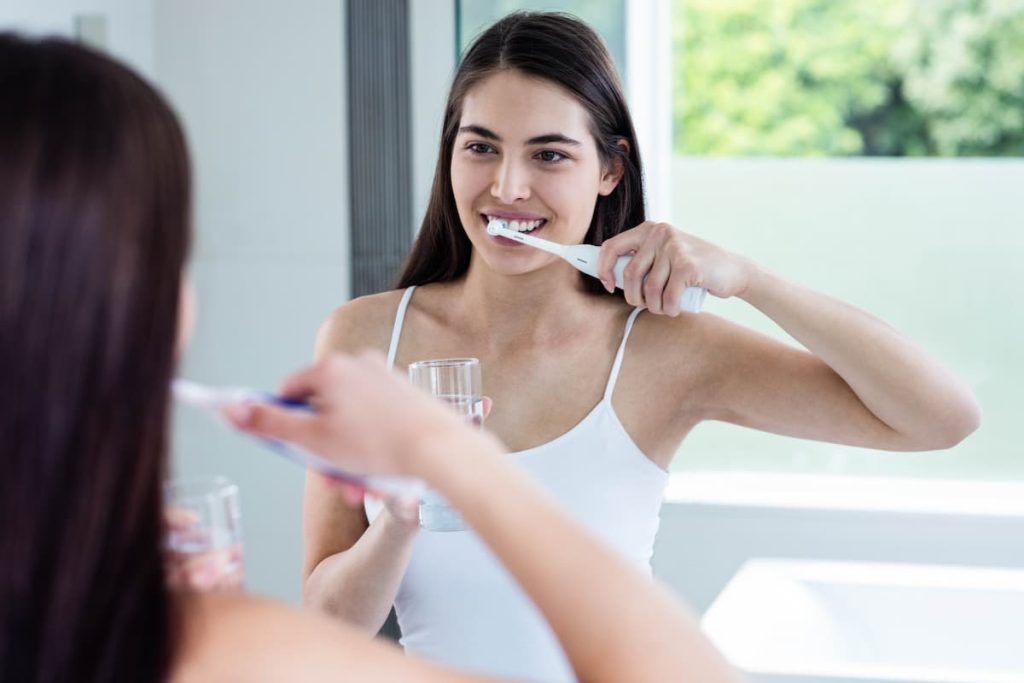
Lifetime Dental Excellence Wishes You a Happy Easter 2023

Mon – Thu: 7:00am – 7:00pm, Fri: 7:00am – 12:00pm, Sat – Sun: Closed
17 S Main St, Clawson, MI 48017


Tooth sensitivity is a common problem that affects millions of people worldwide. It can be caused by a number of factors, including gum disease, teeth grinding, and teeth whitening. Sensitive teeth can make eating and drinking hot or cold beverages very painful.
There are a number of ways to prevent and treat tooth sensitivity. These include using a special toothpaste, avoiding acidic foods and drinks, and getting regular dental checkups.
If you are suffering from tooth sensitivity, it is important to consult with us to find the best course of treatment. Keep reading to learn more about tooth sensitivity, its causes, prevention, and treatment!
Causes of Tooth Sensitivity
1. Gum Disease: Gum disease causes the gums to recede, exposing the sensitive roots of the teeth.
2. Teeth Grinding: Teeth grinding, or bruxism, can wear down the enamel on your teeth, exposing the sensitive dentin layer.
3. Tooth Decay: Tooth decay can lead to the exposure of the sensitive part of the tooth, causing pain and sensitivity.
4. Acidic Foods and Drinks: Consuming highly acidic foods and drinks, such as citrus fruits and soda, can erode the enamel on your teeth, leading to sensitivity.
5. Teeth Whitening: Overuse of teeth whitening products can cause sensitivity by removing the protective layer of enamel on your teeth.
Prevention of Tooth Sensitivity
1. Use a Soft-Bristled Toothbrush: Using a soft-bristled toothbrush helps prevent gum recession and enamel erosion.
2. Avoid Acidic Foods and Drinks: Limit the consumption of highly acidic foods and drinks to help prevent enamel erosion.
3. Use a Desensitizing Toothpaste: Using toothpaste formulated to reduce sensitivity can help prevent tooth sensitivity.
4. Brush and Floss Regularly: Brushing and flossing daily helps prevent tooth decay and gum disease. 5. Wear a Mouthguard: Wearing a mouthguard can help prevent teeth grinding, which can lead to sensitivity.
Treatment of Tooth Sensitivity
1. Desensitizing Toothpaste: Desensitizing toothpaste can help block the transmission of pain signals from the tooth to the nerve.
2. Fluoride Treatment: Fluoride treatments can help strengthen the tooth enamel, reducing sensitivity.
3. Gum Grafting: In cases of severe gum recession, gum grafting surgery can be used to restore the gum tissue.
4. Root Canal Treatment: If the tooth sensitivity is caused by nerve damage, root canal treatment may be necessary.
5. Dental Crown or Bonding: In cases of severe enamel erosion, a dental crown or bonding may be used to cover exposed roots or dentin.
In conclusion, tooth sensitivity is a common problem that can be caused by several factors. Practicing good oral hygiene, avoiding acidic foods and drinks, and attending regular dental checkups can help prevent tooth sensitivity. If you are experiencing tooth sensitivity, book an appointment with us at our contact page.

Cavities and gum disease are the leading dental problems. They are also some of the most preventable. By taking good care of your teeth and gums, you can reduce your risk of developing poor oral health.
1. Brush and Floss Regularly
The most important thing you can do to prevent cavities and gum disease is to brush your teeth at least twice a day and floss once a day. Brushing removes plaque, a sticky film of bacteria that forms on teeth and can lead to cavities and gum disease. Make sure you use fluoride toothpaste and a soft-bristled brush. Brush your teeth for at least two minutes, focusing on all areas of your teeth.
2. Eat a Balanced Diet
What you eat can affect your oral health. Foods high in sugar and starch can lead to cavities by feeding the bacteria in your mouth that produce acid. Acid can eat away at tooth enamel, causing decay. Try to eat a balanced diet that includes fruits, vegetables, whole grains, lean protein, and dairy products. Drink plenty of water and limit sugary drinks and snacks.
3. Don’t Use Tobacco
Tobacco use increases your risk of developing oral cancer, gum disease, and tooth loss. If you use tobacco products, quit as soon as possible.
4. Visit your Dentist Regularly
Regular dental checkups and cleanings can help prevent cavities and gum disease. Your dentist can detect problems early, before they become more serious, and provide treatment. During a dental cleaning, your dentist or hygienist will remove plaque and tartar from your teeth and gum line. They can also provide tips on how to brush and floss more effectively.
5. Use Fluoride
Fluoride is a mineral that helps strengthen tooth enamel and fight cavities. You can get fluoride from fluoridated water, toothpaste, and mouth rinse. If you’re at high risk of developing cavities, your dentist may recommend a fluoride treatment or prescription mouth rinse.
6. Wear a Mouthguard
Mouthguards are crucial for athletes because it helps them protect their teeth from impact. Mouthguards can prevent tooth fractures, chips, and wear.
7. Manage Stress
Stress can contribute to dental problems by causing you to clench or grind your teeth. This can lead to tooth sensitivity, gum recession, and even tooth loss. Meditation, yoga, and exercise are great ways to relieve stress.
Visit our contact page to book an appointment with our team of dentists. We have the team and resources you need to enhance your oral health and feel confident about your smile.

You may not realize it, but the food you eat directly impacts your oral health. In fact, your diet is one of the most important factors in determining your oral health. Read on to learn about the best foods for your oral health.
Oral Health and Overall Health
We tend to think of taking care of our teeth and gums as being completely separate from our overall health. However, this is not the case. In reality, our oral health is closely related to our overall nutrition, which is why it’s so important to eat a well-balanced diet. Eating the right foods can help to protect our teeth and gums from disease and decay.
There are many ways in which what we eat affects our teeth and gums. For example, foods that are high in sugar can cause cavities. Sugary snacks, treats, and drinks can all increase the risk of cavities because they provide the bacteria in our mouths with fuel. Similarly, acidic foods can wear away at tooth enamel over time. Many drinks, such as coffee and cola, contain plenty of acids, which can erode tooth enamel if not consumed in moderation.
The Importance of Nutrition
Calcium, for instance, helps to keep teeth strong. Calcium also helps to protect our gums from disease and inflammation. Similarly, vitamin C is important for gum health as it helps to strengthen the tissues and keep them healthy. That’s why it’s important to ensure that we get enough of these vitamins and minerals through our diet. Eating foods like yogurt, cheese, nuts, and leafy greens can provide us with the calcium and vitamin C we need for optimal oral health.
In Conclusion
Oral health doesn’t stop at brushing your teeth and flossing. Eating foods that are low in acids and sugars is essential for maintaining oral health which impacts your overall health. VIsit our contact page to book an appointment and enhance your smile!

Oral health is crucial for maintaining overall health and well-being. Along with daily flossing and eating a healthy diet, brushing your teeth is one of the best ways to maintain good oral health. But what is the best way to brush your teeth? Keep reading to learn more about the amazing health benefits of using an electric toothbrush!
The Benefits of Using an Electric Toothbrush
Using an electric toothbrush can provide many benefits when it comes to brushing your teeth. Major benefits of using electric toothbrushes include:
How Can You Make the Switch to an Electric Toothbrush?
Making the switch to an electric toothbrush is easy and can be done in a few simple steps. To get started, you’ll need to determine which type of electric toothbrush you want to use. There are two main types of electric toothbrushes: sonic electric toothbrushes and rotary electric toothbrushes. Each type has different features that can help to improve your brushing experience. After you’ve chosen the type of electric toothbrush you want, you can then purchase one from an online store or from a local retailer. Once you’ve purchased your electric toothbrush, you can then start to enjoy the benefits of electric toothbrushing!
To Wrap Things Up
No matter what, brushing your teeth with whatever toothbrush you can access is crucial for your overall health. Standard toothbrushes are effective though electric toothbrushes will help you maintain a pristine and clean smile. Visit our contact page to book an appointment with our dental team to get your teeth cleaned.
Lifetime Dental Excellence
17 S Main St, Clawson, MI 48017
MAP & DIRECTIONS
Phone: (248) 588-6565
Fax: (248) 588-6567
| Monday | 7:00am – 7:00pm |
| Tuesday | 7:00am – 7:00pm |
| Wednesday | 7:00am – 7:00pm |
| Thursday | 7:00am – 7:00pm |
| Friday | 7:00am – 12:00pm |
| Saturday | Closed |
| Sunday | Closed |
